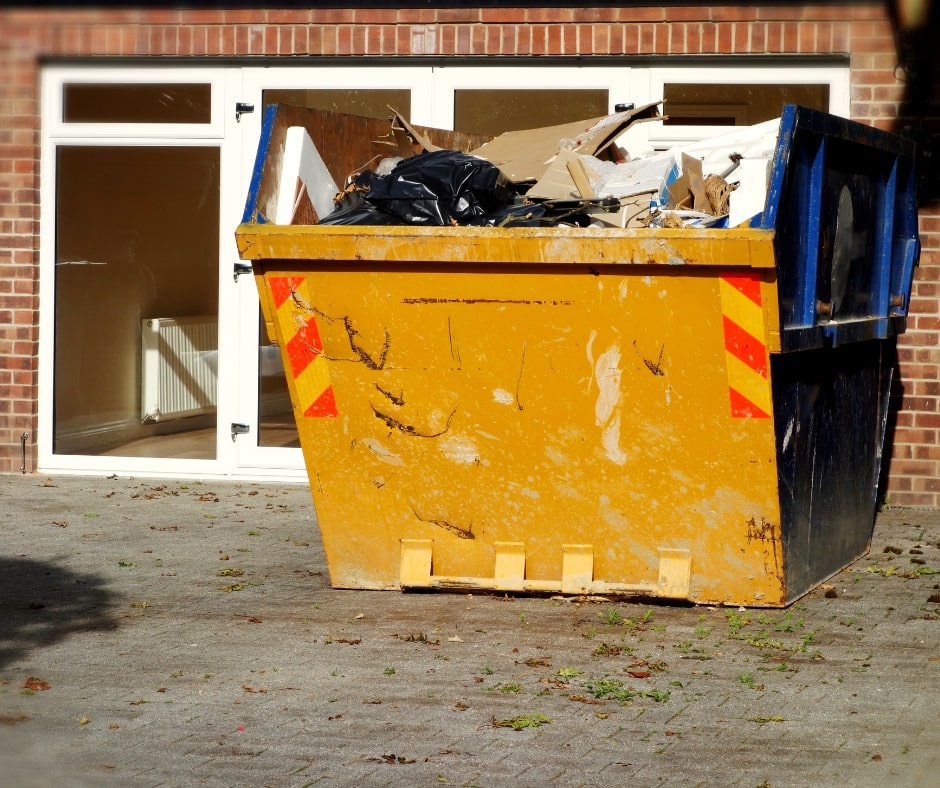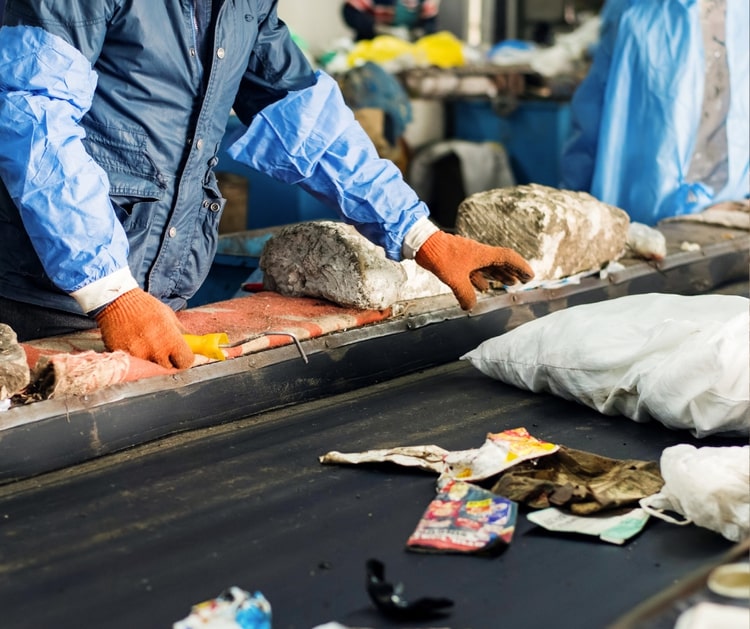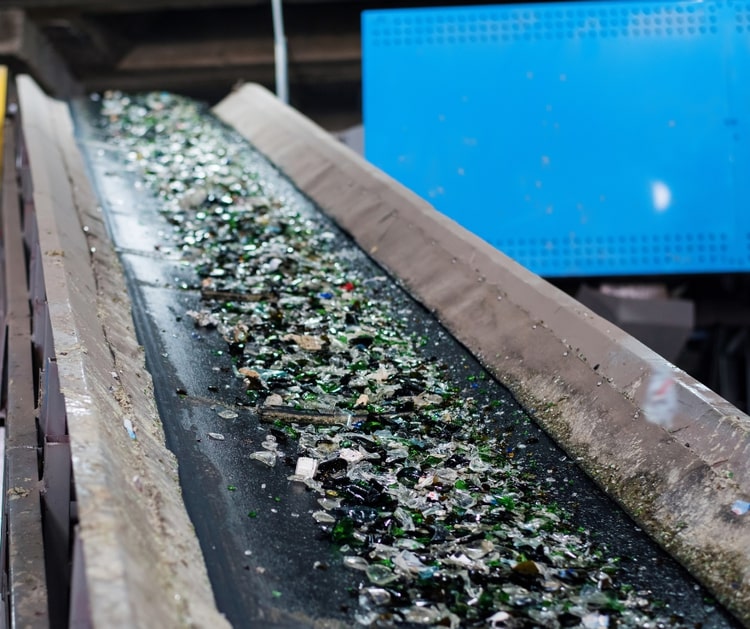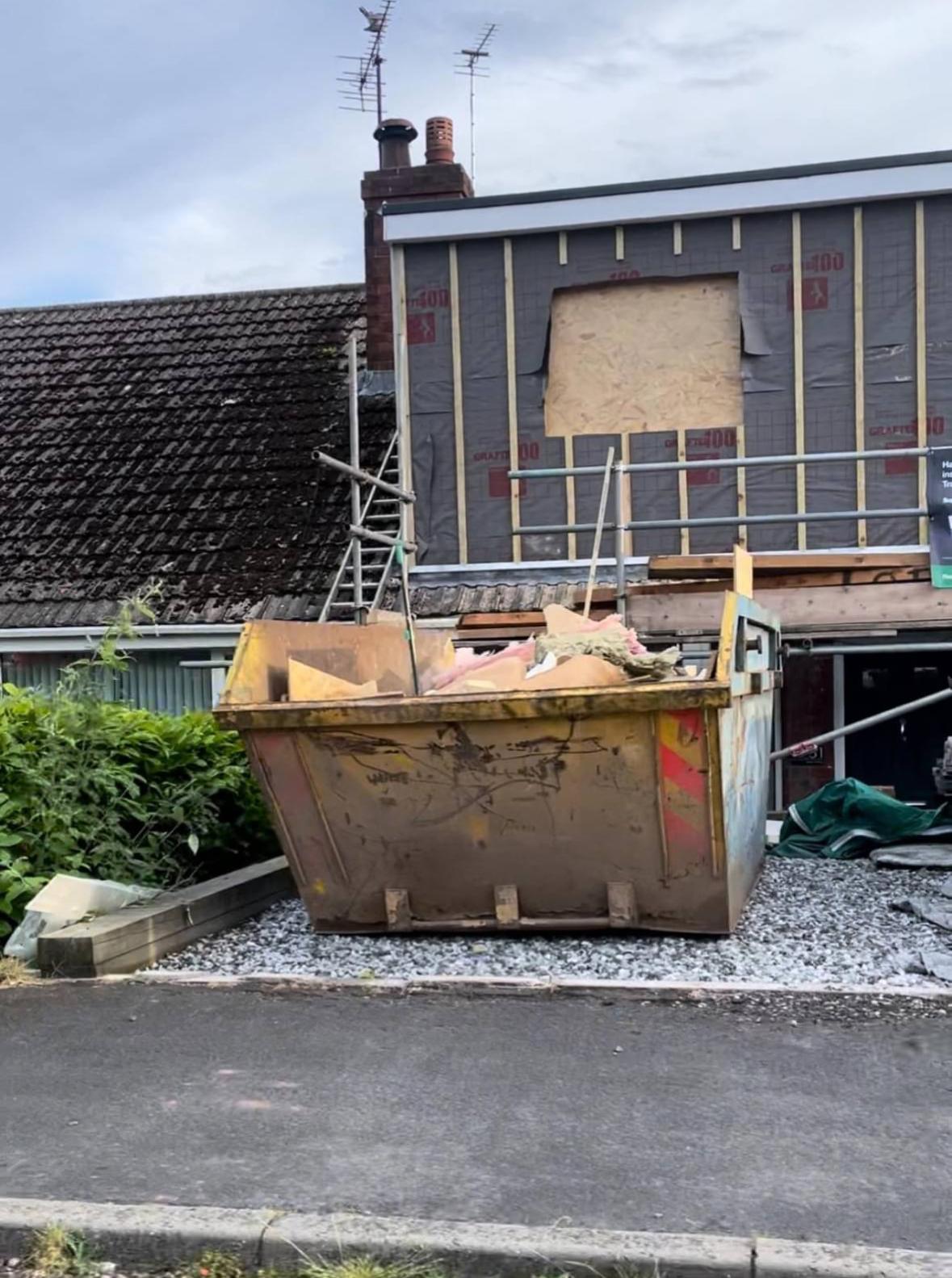Whether you’re a green fingered gardener who’s spent the weekend trimming your laurels or a project manager on a construction site, chances are you’ve thought about hiring a skip. Skip hire is still one of the most effective ways of removing large amounts of trash, however, in today’s environmentally minded society you are probably wondering what happens to your rubbish once the skip is taken away.
Many people assume that the waste they put into their skip ends up in landfill, however, this isn’t the case, only a very small percentage goes to landfill while the rest is recycled. In this guide, we’ll follow the journey your waste goes on as it’s transformed from unwanted garbage into useful materials!

Builders skip
Your wastes journey- from trash to treasure.
The first step in the process after you have filled the skip is the collection, this will be done by the company you hired the skip from at an agreed time that suits you. Once the hire company has collected the skip, it’s whisked away to a place called a waste transfer station. Bigger skip hire firms will have their own waste transfer station, or WTS for short, but smaller companies may have to tip their skips at other WTS’s if they don’t have their own facilities.
Once your waste is tipped the next step of its journey can begin- sorting. This is where your waste is sorted out into different material types, commonly known as waste streams. This will include fabrics, metals, rubble, greens (garden waste such as cuttings), soil, etc. This process will either be done by hand or by machines such as large magnets for metals.
From here the different waste streams can be processed accordingly, this may involve transferring them to other facilities that specialize in the processing of that particular waste material. Some of the larger WTS’s will have processing equipment on their site so there is no need to transport your waste again.

Sorting the waste streams
Processing- putting the “re” in recycle.
The next stage of your wastes journey is processing. Once your waste has been grouped and sorted into the different waste streams, they are then fed into machines to begin turning your rubbish into base materials that can be reused. Different materials will use different machines to process them but most of these machines work by reducing your wastes size to create material that can be handled and transported easily or fed into other machines to develop new products. This might involve shredding, cutting, or crushing your waste. Let’s look at some common materials you might throw away and see how they are processed:
- Building materials- Bricks, concrete, and rubble can be crushed and reused in the building industry fairly easily. Some companies such as this one even offer mini crushers that can process these materials on site. This massively reduces the environmental impact of the building project.
- Greens or garden waste- Garden waste can be mulched down (chopped up very small), to create compost which can be used by farmers or gardeners.
- Wood- Old wooden furniture, wood from building sites, or branches can be shredded to create wood chippings, be reused as processed timber products, or simply burned to create energy.
- Metal- Scrap metal is a high demand waste stream that is often sent to developing countries such as India, China or Brazil. Due to metals’ unique properties, they can be processed and reused many times over. Your tin of beans may once have been a Mercedes Benz!
- Paper & cardboard- Both can be mulched down and used to create new materials, as with metal they can be recycled and reused many times over.

A glass processing machine
A new life
The final stage of your wastes journey is reuse, once the waste streams have been processed, they can be reintroduced as something useful and productive. Your hedge cuttings from last summer could provide nutrients to a farmer’s crop, your old wardrobe and creaky wooden bedframe could end up as floorboards in someone’s new home, or the old scrap you got rid of could make up a gate keeping a family’s property secure.
What about the waste that can’t be recycled?
Unfortunately, even with today’s technology all your waste cannot be recycled, some will still end up in landfills. However, this percentage is shrinking every year, and more and more waste can now be used to create energy in specialist power stations where your waste is incinerated.
Why is landfill so bad?
There are several reasons why we hate landfill, the main ones are:
- Limited space- Landfills take up a whopping amount of space, and, as some of the waste can take decades or even centuries to decompose, they are unlikely to shrink anytime soon.
- Non-renewable resources- Many products are made from non-renewable materials which means once they’re gone, they’re gone, this means recycling is essential.
- Less energy- Even though the journey we’ve discussed sounds very time-consuming and expensive it is still far more cost-effective and environmentally friendly than starting from scratch. Mining metals for example is incredibly expensive, dangerous, and terrible for the environment.
- Toxic- Many of the materials tossed into landfill release harmful chemicals as they decompose, these chemicals can seep into the soil and water in and around the landfill having a devastating impact to the plants and animals nearby.
- They stink!- As in literally smell terrible. As anyone unfortunate to live nearby knows, the smell of landfill can be overpowering at times. Aside from being unpleasant, this can have a very real impact to house prices and can make selling your house difficult.
So that’s the end of your wastes journey, we’ve followed it from the moment you threw it in the skip all the way to its new life as a useful product. Hopefully, this guide has answered your question, what happens to the waste I put in my skip, or at least given you some valuable info for your next pub quiz!
As always if you have any questions you can email us here, thank you for reading.

